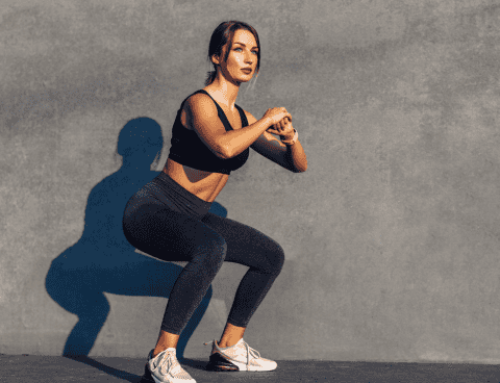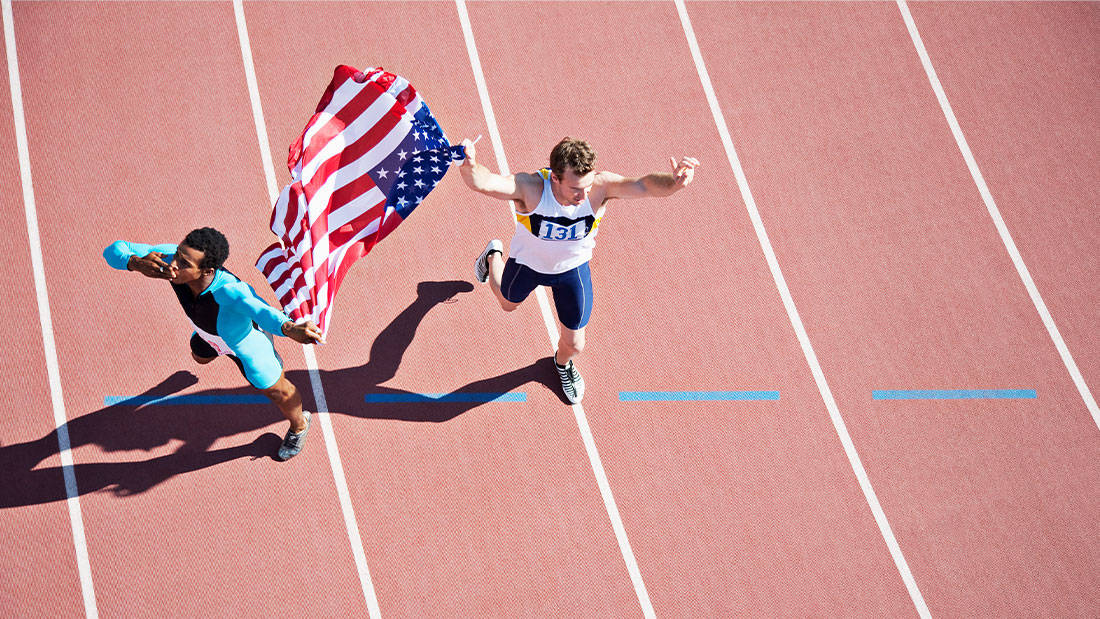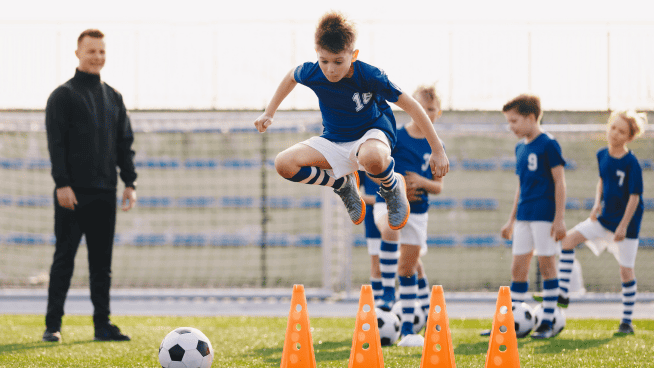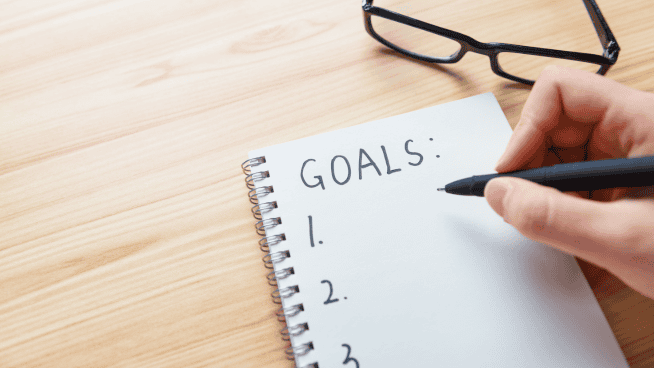Many misconceptions exist about youth athlete training—notably, the idea that young athletes should not participate in any sort of sports performance program. Studies have shown that athletes as young as seven years old can derive benefits from non-weight bearing sports performance training. Under the supervision of trained professionals and with the use of correct exercises, young athletes can see improvements in their overall health, sports performance and confidence. The key is choosing the correct exercises, adhering to strict form and making it enjoyable.
Bodyweight Exercises
Before beginning any type of training program, young athletes must be cleared to participate by a doctor and evaluated by a strength coach or trainer to assess strengths and weaknesses and identify an appropriate starting point. If you don’t have access to a strength coach or trainer, start with bodyweight exercises, like Push-Ups, Pull-Ups, Squats and Lunges. You must master your own bodyweight before beginning to lift weight. Doing so will allow you to develop the solid base you’ll need for improved sports performance. It will also prepare you for more advanced lifts as you increase your strength and coordination.
Prevent Injury
Improving sports performance is only one major goal of a successful sports performance program. The other is injury prevention. Injuries often occur in training not because of the athlete’s age, but because of incorrect form or instruction. When beginning a training program, you must master each exercise’s correct form. If you ignore form, you can set yourself up for injury and reduce the effectiveness of your workouts.
Have Fun
Finally, it is important to remember that workouts don’t have to be all business. For young athletes, especially, they should be fun. You should be lively in the weight room and encourage your friends and teammates to perform their best. Add a competitive element. Use games like “Tag” or a relay race as speed or conditioning drills. Games are entertaining, and they keep the atmosphere light.
Photo: stlouisrams.com
Colin Quay, CSCS, CCS, is the owner of Elite Athlete Training Systems (Washington, D.C.) and has trained thousands of the area’s top high school, college and professional athletes. He is an expert contributor for THR, a SPARQ certified trainer, a regional director for SPARQ Junior Football Combine, an Under Armour C360 trainer and a USA Weightlifting Level 1 sports performance coach. He graduated from Western Maryland College (McDaniel College) with a bachelor’s degree in exercise science and kinesiology.
RECOMMENDED FOR YOU
MOST POPULAR
Many misconceptions exist about youth athlete training—notably, the idea that young athletes should not participate in any sort of sports performance program. Studies have shown that athletes as young as seven years old can derive benefits from non-weight bearing sports performance training. Under the supervision of trained professionals and with the use of correct exercises, young athletes can see improvements in their overall health, sports performance and confidence. The key is choosing the correct exercises, adhering to strict form and making it enjoyable.
Bodyweight Exercises
Before beginning any type of training program, young athletes must be cleared to participate by a doctor and evaluated by a strength coach or trainer to assess strengths and weaknesses and identify an appropriate starting point. If you don’t have access to a strength coach or trainer, start with bodyweight exercises, like Push-Ups, Pull-Ups, Squats and Lunges. You must master your own bodyweight before beginning to lift weight. Doing so will allow you to develop the solid base you’ll need for improved sports performance. It will also prepare you for more advanced lifts as you increase your strength and coordination.
Prevent Injury
Improving sports performance is only one major goal of a successful sports performance program. The other is injury prevention. Injuries often occur in training not because of the athlete’s age, but because of incorrect form or instruction. When beginning a training program, you must master each exercise’s correct form. If you ignore form, you can set yourself up for injury and reduce the effectiveness of your workouts.
Have Fun
Finally, it is important to remember that workouts don’t have to be all business. For young athletes, especially, they should be fun. You should be lively in the weight room and encourage your friends and teammates to perform their best. Add a competitive element. Use games like “Tag” or a relay race as speed or conditioning drills. Games are entertaining, and they keep the atmosphere light.
Photo: stlouisrams.com
Colin Quay, CSCS, CCS, is the owner of Elite Athlete Training Systems (Washington, D.C.) and has trained thousands of the area’s top high school, college and professional athletes. He is an expert contributor for THR, a SPARQ certified trainer, a regional director for SPARQ Junior Football Combine, an Under Armour C360 trainer and a USA Weightlifting Level 1 sports performance coach. He graduated from Western Maryland College (McDaniel College) with a bachelor’s degree in exercise science and kinesiology.











